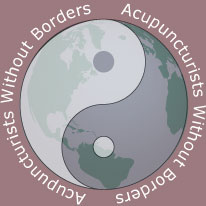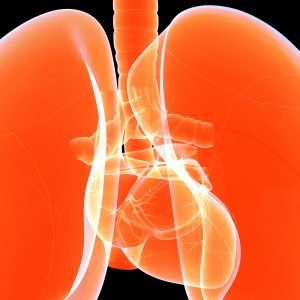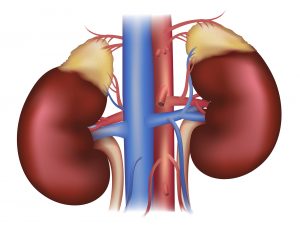Trauma Training Tip
Autumn. The air becomes crisp and clear. The loss of light inhibits chlorophyll production — and allows the inherent beauty of the leaves to show. Like the trees that show their splendor, we too are supported to see and know our value — and own essential, gem-like nature.
The Metal Element’s organs are the Lung and the Colon. It represents both the beginning and the conclusion of the cycle of creation. We measure the beginning and ending of a life with the Lung’s function — it carries our “first” and our “last” breath.
The Lung houses the animal soul or the “Po” — which is responsible for our sensate awareness and governs our capacity to be spiritually alert and animated. The Colon lets go of what is no longer useful. It is responsible for transit of the “residue of transformations.” Paired with the Lung, which receives pure Qi, it lets go of the impure.
The Self-Protective Response also begins and ends with the Metal Element’s gift of somatic awareness. The Metal helps us to fully embody an experience of successful survival — and leaves us more available to receive clear and unencumbered information to again “awaken arousal” to a potential future risk. The Metal brings forward qualities of precision, inspiration, and longing for connection with the heavens. Meditation practices that focus on the breath help cultivate Metal energy.
Alaine’s Two Cents
Researchers at Columbia University have published some pretty fascinating research on the role that bones may play in signaling threat.
Acupuncture and Asian medicine has long understood the corresponding relationship between the Water Element, the Kidney/Adrenal and Bladder, and the bones, brain stem, and fear.
This research continues to build on the fascinating East-meets-West interface found in trauma physiology! It also illuminates the connection between high Adverse Childhood Experiences (early trauma) scores and osteoporosis.
Check This Out!
Acupuncturists Without Borders is hosting a series of service trips to the Enclave Caracol Clinic (sponsored by the Refugee Health Alliance) in Tijuana, Mexico. I will be joining them October 21-26. Look for some stories of my experience on the Integrative Healing, LLC facebook page.
These service trips provide trauma and pain relief treatments to asylum-seekers, immigrants, refugees, and community support volunteers in the Tijuana-San Diego area. AWB already has a similar project in Texas. You can read more about it here.
Donations to support this effort help make it happen! You can donate here if you are so moved.
Clinical Curiosity
Where is your clinical curiosity carrying you?
Send me a question or two and I will explore them with readers in this corner next month.
Q. My 30-ish old patient complains of having trouble connecting — with herself and with others. She seems challenged in the functions of the Qi in her chest — she feels lonely, disconnected from her heart and her emotions, and recently has developed a cardiac arrhythmia — not all the signals get to her ventricles, causing an occasional skip. I treat her Metal — her Lung and Colon, and that does seem to help. While she doesn’t identify herself as a “trauma survivor,” I wonder if some of her suffering relates to her experience as a small child with inadequate attention from her parents, who she describes as very narcissistic.
 A. This is a great topic of conversation for this column!
A. This is a great topic of conversation for this column!
Not everyone with autonomic nervous system dysregulation will conform to the “classic” medical definition of Post Traumatic Stress Disorder: “direct or indirect exposure to a known traumatic event involving actual or threatened death or injury, or a threat to the physical integrity of him/herself or others (such as sexual violence)”.
That’s why I prefer the term “traumatic stress response,” first coined by Wayne Jonas, MD. Traumatic stress has diverse physical and psychological symptoms, and can arise as assuredly from chronic emotional neglect in childhood as from the terror of witnessing a loss of life, the impact of a natural disaster, or an overwhelming experience in combat.
It sounds like you are spot on with treating her Lung and Colon. While her symptoms are in her heart, the Lung is responsible for the overall rhythm of body-functions — including the regularity of the cardiac rhythm. It is also a close “room-mate” to the Heart — and is influenced by its function.
Adults who didn’t experience coherent connection with their caregivers as infants may struggle to find a sense of coherence as adults. Their system didn’t get practice in creating coherent connection. The many functions of their ventral vagus nerve, which innervates above the diaphragm — and mirrors the functions of the Zong Qi — or “Qi of the Chest” in Acupuncture and Asian medicine, will be compromised.
Arrhythmias such as you describe are somewhat unusual for someone her age. Such “strange, rare, and peculiar” symptoms are, however, not uncommon in adults who experienced trauma in infancy or childhood. With your help, she may find herself healing the experience-dependent maturation of brain functions that were missed developmentally. Your comforting touch can help create a sense safe, secure, and respectful relational field for working with her — and transform the brace or collapse in tissues and functions that impact adult morbidity and mortality. It will also make your skillful acupuncture more accessible to her system.
She is lucky to have found you.


